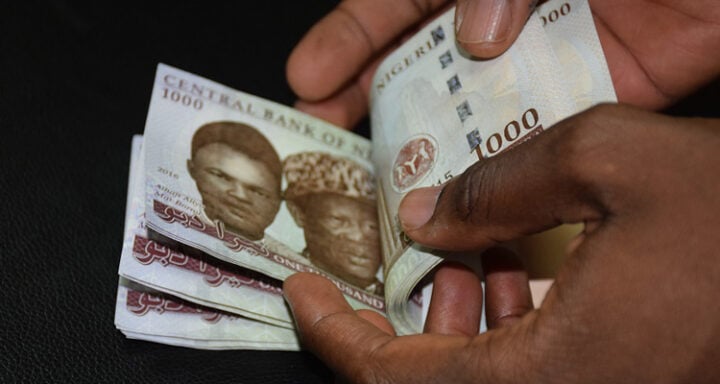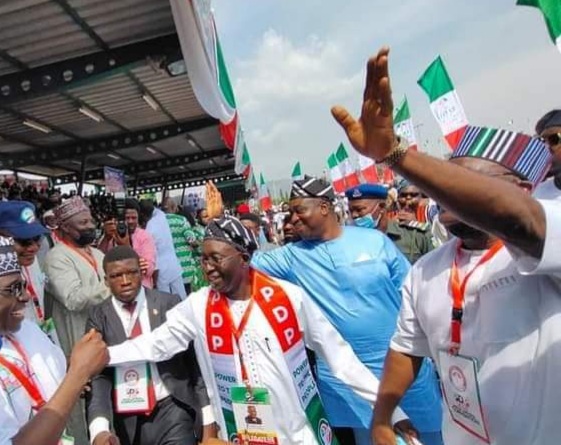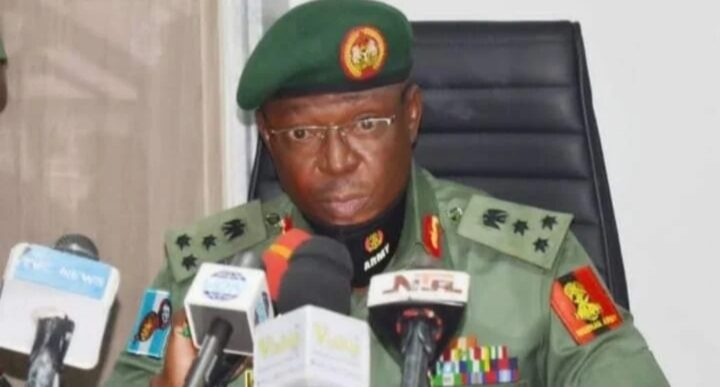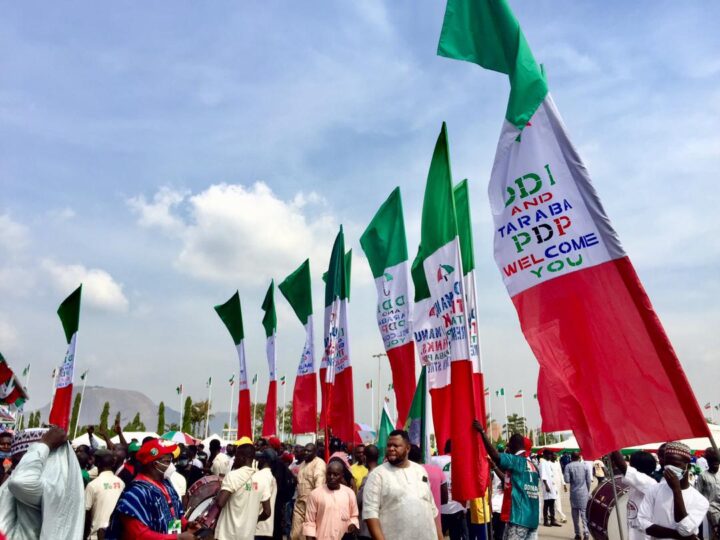When you sow the wind, you reap the whirlwind. This always comes to mind anytime there is an outbreak of debate over the naira. It is a discussion we have been having since, I think, 1986 when Gen Ibrahim Babangida, then military president, launched the structural adjustment programme (SAP) essentially to develop the non-oil sectors. Nigeria was facing a debt crisis and a crippling revenue shortfall and wanted to take a loan from the International Monetary Fund (IMF). After a nationwide debate in which Nigerians opposed it, Babangida, if I recall well, said we would not take the loan but would implement the conditionalities — which bordered on economic restructuring.
Until then, the Central Bank of Nigeria (CBN) fixed the exchange rate. The naira was always stronger than the dollar. From the advent of the oil boom of 1973 up till the introduction of SAP in 1986, a dollar was sold for between 60 kobo and 80 kobo at various points. There was no magic to it: we were swimming in dollars. Let me be more accurate: we were drowning in dollars. Petrodollars. The October 1973 attack on Egypt and Syria by Israel had led to the boycott of international oil market by Arab countries in protest and solidarity. This caused a cut in production by over five million barrels per day. The shortage saw global oil prices tripled between October 1973 and March 1974.
The crude oil that was selling for $3/barrel in 1973 was going for $12/barrel by December 1974. While our oil earnings in 1970 amounted to just $200 million, we started averaging $4bn per year from 1973 to 1978. The jump was intoxicating. That was the beginning of our problem, even though we thought we were having fun. Nigeria was hit by the Dutch Disease — an economic concept that describes a situation where a glut of petrodollars leads to a strong local currency, making imports cheaper and exports more expensive, and ultimately leading to deindustrialisation. It became cheaper to import a bottle of water than to make it in Nigeria. Our exports became uncompetitive.
After a fall in oil prices in 1978/79 as a result of many developments — for instance, fuel-efficient cars were introduced by Japanese manufacturers, the US started exploring oil in the Gulf of Mexico and companies started a scheme of buying pool cars for their staff to reduce fuel consumption — the black gold was back on its feet in 1980. Nigeria earned $22.4bn that year alone and exchange rate was 55 kobo/$1. Of course, we resumed our extravagance and forgot about tomorrow. After all, are we not Nigerians? The global economic crisis of 1982 bit us badly. Oil revenue was down to $9.6bn. With the Dutch disease, we had become import-dependent and local factories were dying.
Advertisement
There is also this issue: torrential revenue from a natural resource crowds out other sources (such as cocoa and groundnuts) and creates a harmful dependency on one source. This seriously distorts an economy where everything revolves around government. Oil went from being 57.2% of our exports in 1970 to 92% in 1974 — and till this day. If we were earning forex from multiple sources, the fall in oil prices would not have hit us that hard. Oil wealth encourages lazy, wasteful and extravagant behaviours: from expanding the size of government to acquiring tastes for foreign goods. When oil prices rise, we lose our heads. When they fall, we gnash our teeth. This is the story of our lives.
While the trouble went on, exchange rate remained at roughly 60 kobo/$ while our reserves were getting depleted to keep the naira alive. From a fairly handsome reserves kitty of $10bn in 1980, we had only $1bn by 1982. We were no longer creditworthy to import goods, particularly food items. A country with massive arable land that should be producing and exporting things like rice and milk had become hopelessly dependent on food imports. Manufacturers had little or no forex to import raw materials and spare parts. Shutdowns and retrenchment were inevitable. The import licensing regime — introduced to allocate forex to manufacturers — was hijacked by politicians and cronies.
What happened next? Many of the favoured receivers of forex from the CBN diverted it to the streets for the arbitrage — and the black market, or parallel market, was born. We have been living with this anomaly since 1982. Why? The fundamental problems have remained the same: we are import-dependent and we do not earn enough forex to import and the forex coming into the economy are mainly from oil exports and the revenue goes to the government and government is virtually the only source of forex supply and the CBN remains the central figure in determining the allocation and the rate at which the forex will be bought and sold. And so on and so forth.
Advertisement
The introduction of the second-tier foreign exchange market (SFEM) by Babangida in 1986 was an attempt to cage the black market. The first-tier rate, fixed at N1/$ (99 kobo actually), was solely for the government. The second tier was for other forex users. Officially, the government wanted a currency that would be traded freely at SFEM to eliminate arbitrage. In reality, the naira lost value. It started trading at N4/$ on its debut. It has not stopped losing value since then. It is now N411/$. Why? The fundamental problems have remained the same: we are import-dependent and we do not earn enough forex to import and the forex coming into the economy are mainly from oil exports…
Now that the naira is seriously challenged yet again, the question for me remains: has anything changed to give us hope that we will reach stability at a point? You cannot be earning $1 from exports and needing $2 to pay your import bills and think your currency will be stable, especially as you are stuck with one major export whose price you don’t determine. That is why many economists insist the naira is overvalued: when demand is higher than supply, price adjustment is a natural consequence. The government knows this and has been adjusting the rates, albeit not at the pace and rate some would want it. The exchange rate was N155/$ in 2014. It is now officially N411/$.
There would never be an end to devaluation as long as the economic structure remains as it is. The naira will continue to be severely challenged as long as the relationship between forex outflows and forex inflows is unhealthy. Cost of living will keep rising as we keep depending on imported goods, especially food. And except we improve the standard of living of Nigerians, poverty, unemployment, disease and crime will continue to hurt us. Inequality will worsen. We need to be clear on this. That is why it breaks my heart that, confronted with this dire situation, we are still enmeshed in wasteful spending and brazen corruption. Nobody should be surprised that Nigeria is like this.
What I have observed is that per time, there are many enemies fighting the naira. I put the blame squarely at the feet of the government. Or, more appropriately, leadership. I am not going to sit here and start lamenting over the errors we made in the 1970s when we started drowning in petrodollars. There is nothing we can do about that. We mismanaged the opportunity. We cannot turn back the hand of time. But some of our policy failings since we started facing economic crises in the 1980s have not be helpful. We need to seriously address these failings, otherwise the value of the naira will continue to tumble without much benefits to the economy and the people.
Advertisement
I will pick just three “enemies” for discussion in this article. One, local refining. The biggest pressure on forex today is from importation of petroleum products — petrol, diesel and aviation fuel in particular. What we are doing, essentially, is export oil and then use most of the forex earnings to import refined products. How on earth can the naira not keep losing value? Take away the fuel import component of forex demand today and there would be a huge relief for the naira. In the past, some of us advised that the government should build refineries so that we would stop importing products. We were told it was the job of the private sector to build refineries. Here we are.
I understood the deregulation and privatisation bits of the argument very well, but I was pursuing what in my opinion was a more realistic position: private sector investors wanted the pricing mechanism of petroleum products free of government control, otherwise they would not sink their capital into building refineries. Yet, freeing fuel pricing was going to be at heavy social and political costs. My proposal then was that to kickstart the process, government should build refineries, lease out the management, fulfil local consumption, and even start exporting to earn forex from both crude and products, and then sell off the refineries to core investors and on the stock exchange.
A very influential oil company executive called and “tutored” me that there was little difference between importing petroleum products and local refining. “Simon,” he said in a clearly patronising tone, “the difference is just in shipping cost, which is negligible. Shipping is the cheapest mode of transportation in the world.” But when you spend about 50% of your oil income to import petroleum products, of course there is a huge difference: your forex reserves will get depleted and the naira will come under attack, minus the fact that you are shutting out manufacturers and other forex users. If we were not importing products but refining locally, the story would be different.
The second enemy is the state of our education and third is the health care system. According to the CBN, these two items gulp billions of dollars every year. We all know that the quality of education and health care in the country has gone down over time because of poor, inept and selfish leadership at different levels. This is worsened by the constant strikes. Anyone who can afford to school abroad or seek foreign treatment will not miss the chance. The forex demand for these two items puts significant and avoidable pressure on our forex reserves and humiliates the naira. I can go on and on, but I have chosen these three items because I believe we can easily relate with them.
Advertisement
Ironically, it wouldn’t really matter if the exchange rate was N1000/$ if we were productive. The real issue would be the quality of life the currency can give to Nigerians and that goes to deeper structural issues and the size of the economy against our population. The Indonesian rupiah is 14,228/$1 but the GDP per head (purchasing power) is $12,800. Ours is $5,250. Indonesia is industrialised, produces most of what it eats and exports palm oil, steel, textiles, and automobiles, etc. Apart from oil, what else can Nigeria sell to the world? How can we become better educated, healthier, secure and more productive? Our journey to development is still a very long one.
AND FOUR OTHER THINGS…
POLICE POLLS
Advertisement
They say politics is a game of numbers. So also is security for elections in our troubled country. Ahead of the November 6 governorship poll in Anambra state, the deployment of security personnel is massive in view of the situation in the south-east which curtailed campaign rallies and led to low-key electioneering. The Nigeria Security and Civil Defence Corps (NSCDC) says it will have 20,000 officers on the ground. The police have announced the deployment of five AIGs, 14 CPs, 31 DCPs and 34,587 officers. While this is intended to assure residents that they are safe in the midst of threats by the separatist Indigenous People of Biafra (IPOB), it can equally scare voters away. Catch-22.
COVID COST
Advertisement
The federal government will have to review its international travel protocols because something just doesn’t sound right, except there is a financial motive. The United Kingdom has finally recognised the integrity of our COVID-19 vaccination and no longer requires a pre-departure PCR test for those travelling on Nigerian passports. They are only required to do a Day 2 test on arrival. Curiously, Nigeria has failed to reciprocate this gesture. Fully vaccinated travellers to Nigeria are still required to do pre-departure tests as well as Day 2 test on arrival. For a country that wants to get more people jobbed, full vaccination for international travels can be an incentive for some. Rethink.
PUBLIC PROPERTY
Advertisement
Now, wait for this: the Independent Corrupt Practices and Other Related Offences Commission (ICPC) says it has recovered 301 “illegally acquired” houses from two public officials in the federal capital territory (FCT). I don’t think Mr Bolaji Owasanoye, ICPC chairman, needed to put the “illegally acquired” phrase in his revelation. There is no way they would have acquired 301 houses legally and legitimately. We generally know that real estate is the biggest arena for money laundering globally. What we don’t know is what will happen to these two public officials. It would be very good for ICPC to be making these startling revelations in court, supported with diligent prosecution. Imperative.
DRUG DEVILS
Prof Mojisola Adeyeye, the director-general of the National Agency for Food and Drug Administration and Control (NAFDAC), recently lamented that “cabals”, capitalising on the removal of the agency from the ports between 2011 and 2016, are behind the influx of fake and substandard drugs into the country. Unfortunately, by the time these drugs leave the ports and end up in pharmacies, they cannot choose their victims. It could be the same Customs officer or Ports official that will end up buying or using the fake and substandard products. The innocent will suffer too, I know, but I’m just saying maybe these criminal cabals can also buy themselves some sense. Devils.






